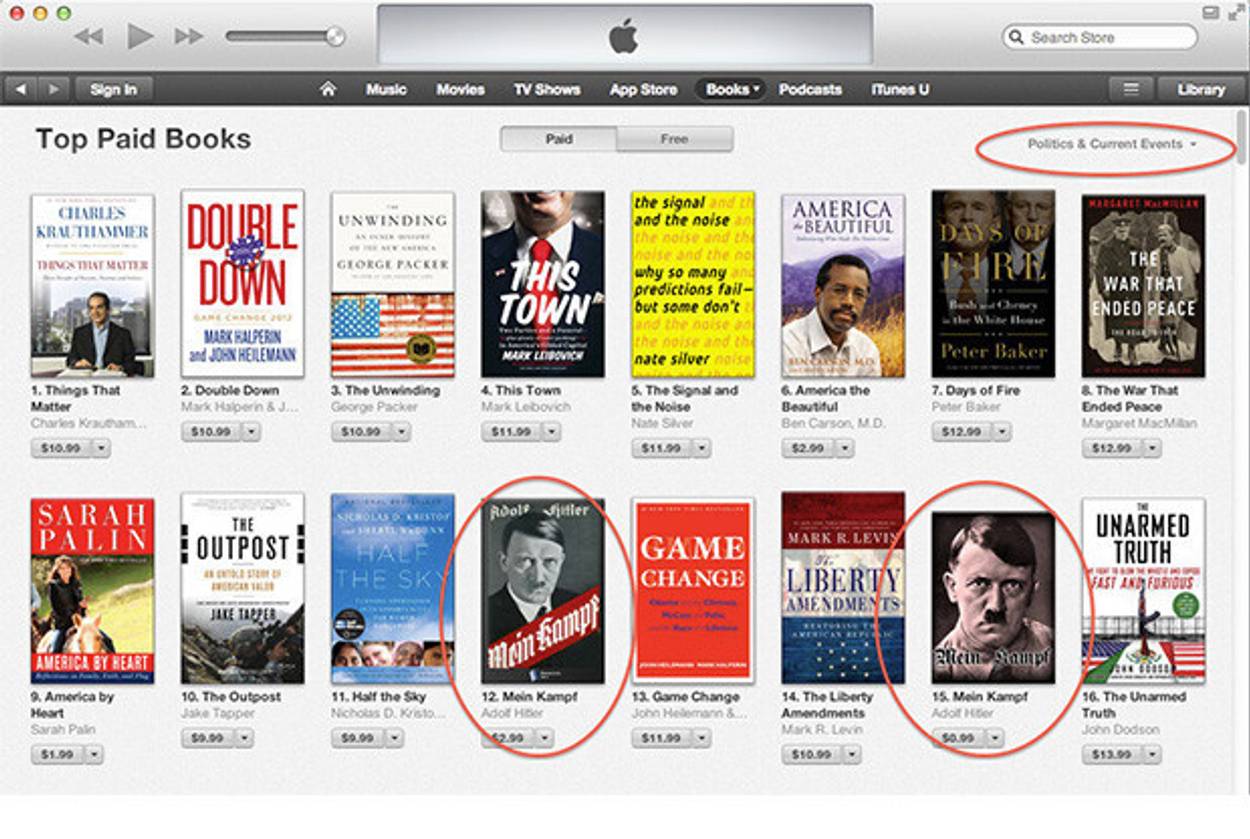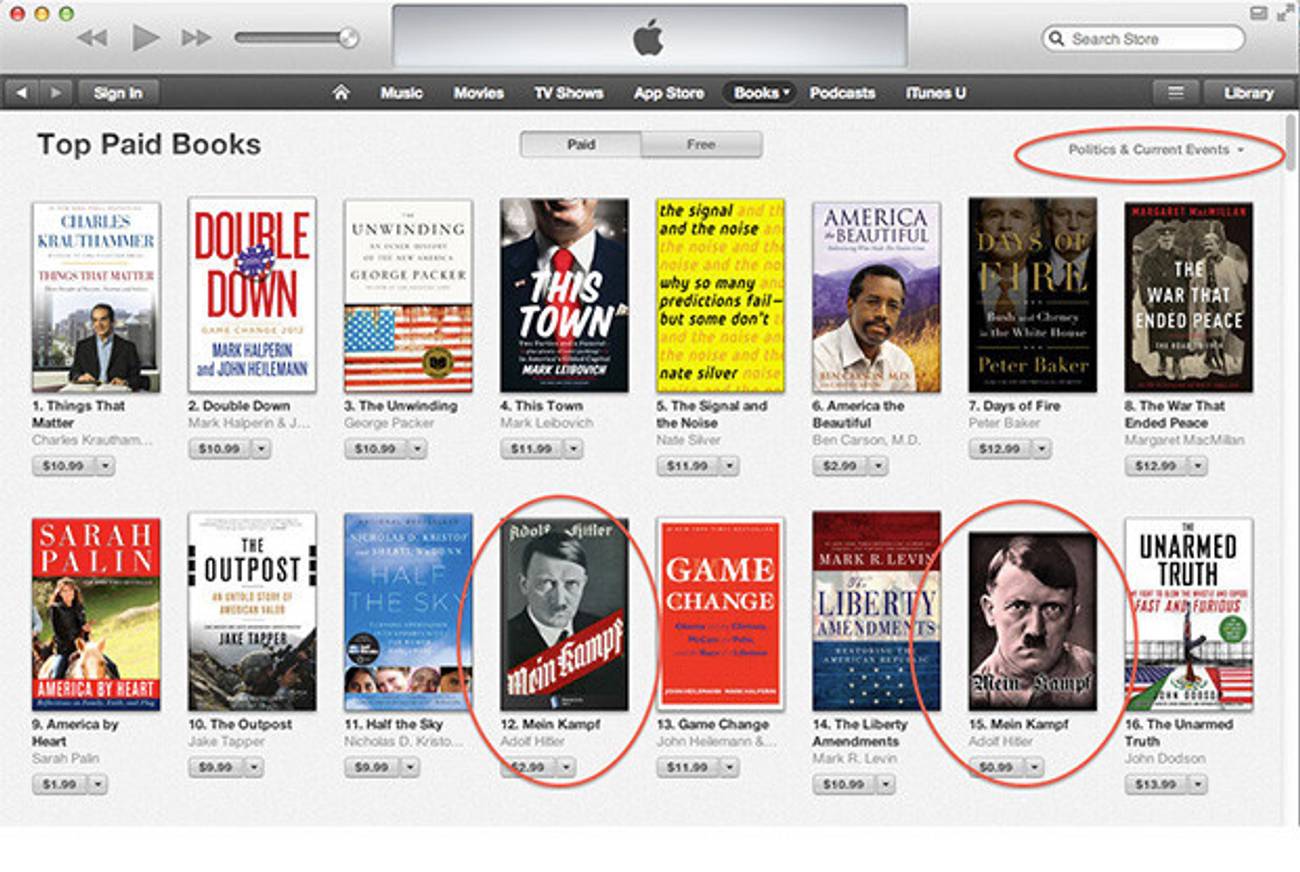Mein Kampf Tops the E-Book Charts
What’s behind the book’s startling rise to e-prominence?




Adolf Hitler is an Amazon hit. Or at least his notorious 1925 screed, Mein Kampf, is, to the surprise and consternation of many. Vocativ took a look at the various e-book versions of Mein Kampf’s near-viral online success—or as they referred to it, a “gold mein.”
Mein Kampf hasn’t made The New York Times nonfiction chart since its U.S. release in 1939, the same year Germany invaded Poland, and its print sales have fallen steadily ever since. But with a flood of new e-book editions, Hitler’s notorious memoir just clocked a banner digital year. One 2012 English-language version is currently the number one Propaganda & Political Psychology book on Amazon. Another digital selection is a player in the Globalization category.
So what’s with Mein Kampf’s rise to e-prominence? For one thing, it’s a lot easier to click open the Kindle version instead of whipping out a print copy of Mein Kampf on the subway. The book is so notorious, even the most curious readers probably wouldn’t bring it to the checkout counter at Barnes and Noble. As Vocativ points out, the book’s popularity falls in line with the 50 Shades of Grey model: readers are much more likely to stealthily download the online version, just to see what’s inside.
And maybe it’s time they did. The book itself, published a decade before World War II, is frighteningly frank about Hitler’s plans. In it, Hitler details his intentions to eliminate the Jews, also suggesting the German Reich expand by taking some of Russia’s land. As Marc Tracy noted back in 2010, while the book outsold the Bible in Germany as Hitler rose to power, no one seems to have actually taken a look inside.
Still, the book’s popularity is troubling, as it suggests that some of the people reading it may be genuinely interesting in emulating—or at least learning from—the Fuhrer’s beliefs. ADL National Director Abe Foxman, who wrote the introduction to the Houghton Mifflin Company’s 1998 translation of Mein Kampf, said in a statement that there’s a way to attend to the curiously surrounding the book without fueling anti-Semitic views:
We believe it is important for the book to continue to be published as it does have value to historians and students of Holocaust history. There is always the concern, however, that some people who are already infected with anti-Semitism will misuse the book in an attempt to glorify Hitler or reinforce their own warped views about Jews. We think the only constructive way for the book to be published is with an introduction that explains the historical context and the impact of the thinking behind Hitler’s words, which led right up to the murderous, racist Nazi regime.
While we are not ready to conclude that the spike in Mein Kampf e-book sales reflects a rise in bigotry and anti-Semitism, we are always concerned when large numbers of people are exposed to such hatred that it could have impact.
With the copyright of the original expiring in 2015—70 years after the death of its author—this is likely not the last we’ll see of Mein Kampf’s various iterations in the coming year.
Previous: Hot Off The Presses: ‘Mein Kampf’
Stephanie Butnick is chief strategy officer of Tablet Magazine, co-founder of Tablet Studios, and a host of the Unorthodox podcast.